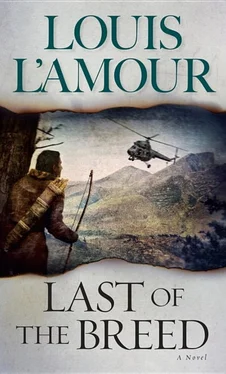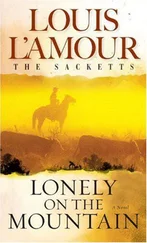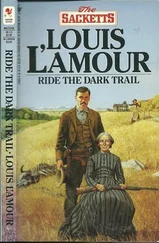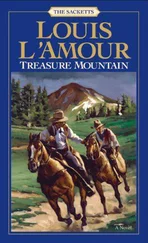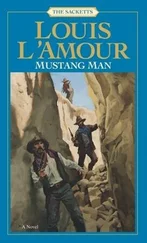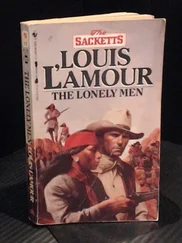Louis L'Amour - Last of the Breed
Здесь есть возможность читать онлайн «Louis L'Amour - Last of the Breed» весь текст электронной книги совершенно бесплатно (целиком полную версию без сокращений). В некоторых случаях можно слушать аудио, скачать через торрент в формате fb2 и присутствует краткое содержание. Город: New York, Год выпуска: 2010, ISBN: 2010, Издательство: Random House Publishing Group, Жанр: Триллер, Историческая проза, Приключения про индейцев, на английском языке. Описание произведения, (предисловие) а так же отзывы посетителей доступны на портале библиотеки ЛибКат.
- Название:Last of the Breed
- Автор:
- Издательство:Random House Publishing Group
- Жанр:
- Год:2010
- Город:New York
- ISBN:978-0-553-89935-1
- Рейтинг книги:3 / 5. Голосов: 1
-
Избранное:Добавить в избранное
- Отзывы:
-
Ваша оценка:
- 60
- 1
- 2
- 3
- 4
- 5
Last of the Breed: краткое содержание, описание и аннотация
Предлагаем к чтению аннотацию, описание, краткое содержание или предисловие (зависит от того, что написал сам автор книги «Last of the Breed»). Если вы не нашли необходимую информацию о книге — напишите в комментариях, мы постараемся отыскать её.
Last of the Breed — читать онлайн бесплатно полную книгу (весь текст) целиком
Ниже представлен текст книги, разбитый по страницам. Система сохранения места последней прочитанной страницы, позволяет с удобством читать онлайн бесплатно книгу «Last of the Breed», без необходимости каждый раз заново искать на чём Вы остановились. Поставьте закладку, и сможете в любой момент перейти на страницу, на которой закончили чтение.
Интервал:
Закладка:
Alekhin was a man of patience. The search for the escaped American had covered Siberia for three weeks before he had been ordered to participate, yet he had watched and listened for all that time. It had amused him that the American should disappear so completely and that he alone knew how and why.
The search had centered around towns, along the borders, along the Trans-Siberian, everywhere but where it should have been. Alekhin respected Zamatev even though he did not like him. The Russian was unbelievably thorough. He was also cruel and completely ruthless, something the Yakut understood and admired. Zamatev’s trouble was that he was Zamatev and a Russian.
A Russian did not think like a Yakut. Moreover, he did not think like a Sioux. Zamatev did all the right things, but in this case they were wrong, for he did not understand the manner of man he was pursuing.
When the Yakut was ordered to take up the search he knew every vestige of a track had been wiped out by tramping feet, racing automobiles, and the generally wasted efforts.
To capture an escaped prisoner one has to think like an escaped prisoner. And if that prisoner is an Indian, one has to think like one.
Alekhin was in no hurry. The American was not going to get out of Siberia before winter, and the winter would probably kill him. It was no use rushing off in all directions. First, one had to decide what the American had done.
The initial search had been quick and thorough, yet the American had not been found. Hence, he was beyond the limits of their search before it began. The American had been an athlete, hence he could run, and so he had.
The first search had failed, the further search had employed larger numbers of soldiers but with a total misunderstanding of the man whom they sought.
Slowly, day after day and with meticulous care, Alekhin prowled the country around. He visited every prospector’s camp, talked with hunters and fishermen, with bargemen and surveyors, and he heard nothing of significance until the day he visited Vanyushin’s remote camp.
Vanyushin made tea. He was a young geologist and mining engineer who had found an important prospect and was developing it himself. At least, to the point where he could turn it over to a competent developing engineer and miners. He enjoyed working in wild country, and once this prospect was launched he would be off to discover another.
“Oh, I remember the day, all right! It was either that day or the day after when Paul went to town. Left me alone for two weeks and almost out of supplies.”
He frowned. “We thought we had more than we did, but we came up short. At least, I did.”
“You mean you missed some supplies?”
“Oh, no! Not really.” He gestured toward the shelves with their neat rows of cans, “I thought we had more than we did. I thought the cans were stacked three deep, but they were not.”
Alekhin stared out the window. He looked sleepy. “Paul went to town that day? And what did you do?”
“Went to work, of course. I was drilling at the face of the tunnel. We have no power here, so it was hand work all the way.”
Alekhin pushed his empty teacup toward Vanyushin. “Then nobody was at the cabin?”
Vanyushin shrugged. “No reason why there should be. Often we were both working, but there was nobody around to steal anything.”
“But you did miss some canned goods.”
“Oh, that was just a miscount! Paul probably put them on the shelves. We had a dozen cans of fish. It was fish from Baikal, my favorite.” He shrugged. “Maybe he ate them himself.”
“Some men will do that. I have known soldiers to hoard food.” Alekhin sipped his tea. It was warm out there in the sunshine, another of those amazingly clear days for which the area near Yakutia was noted. “Lose anything else?”
“No, not really.” Vanyushin frowned. “Come to think of it, yes. I lost my knife. My favorite knife. But that was Paul! Always using things and not putting them back where they belong.”
Vanyushin made an excellent tea, Alekhin reflected. An excellent tea. His eyes scanned the tree-clad slopes, then returned to the cabin. He finished his tea and then stood up.
Vanyushin looked up at him. God, but the man was big! Not tall, just big. He was broad and thick and not with fat. Yet he moved as smoothly as a skilled ballet dancer. Vanyushin had known such men before, but not often. What they had was power.
Alekhin’s eyes swept the cabin again. “Snug,” he said, “but no place to spend the winter.”
“No, I’ll come down to Chita for that. I might even go to Irkutsk.” Vanyushin stood up, too. “Sorry I couldn’t help you.”
Alekhin’s eyes swept over the old clothing hanging from nails in the log wall. Some of the pieces were quite dusty. If something was taken from there, how long before it would be noticed?
“You have helped,” Alekhin said. “And thank you for the tea.”
He went outside and looked up at the hills and smiled. Now he knew.
Alekhin did not often smile, but now he knew not only the American’s direction but something of the kind of man he was. He had stolen food so cleverly that Vanyushin had not realized, and very likely some article of warm clothing. The knife had been his only false move, but that was necessity. A man can survive with a knife. A really good man needs nothing else. Of course, he might be wrong, but Alekhin was sure. His every instinct told him Makatozi had come this way.
A few hours later he was seated in Colonel Zamatev’s office.
“East? The man’s insane! It’s too far! It will be too cold! Why not to China? That’s the logical way, the easy way.”
Alekhin stared at Zamatev from heavy-lidded eyes, eyes that seemed without expression, without emotion. “He is a man of the woods, a wilderness man. You would never catch him.”
Zamatev felt a flash of anger. Alekhin presumed too much on their years of working together. How dare the Yakut say that to him? What had come over him?
“He is an Indian. To catch an Indian you must think like an Indian.”
“Bah! He is a civilized man! An officer in his country’s air force! He is a graduate of a university!”
“He is an Indian.” The Yakut put his hand on his heart. “I feel it here. Whatever else he has become, he is still an Indian.”
“So? You understand him then? What will he do now?”
“He will try to escape. He will live like an Indian. If trouble comes he will die like an Indian, but first he will try one more thing.”
“What thing?”
The Yakut looked at Colonel Zamatev, and not without satisfaction. “He will kill you,” he said.
Chapter 6
On the day Alekhin drank tea in Vanyushin’s cabin Joe Mack was squatting under a stone pine some fifty miles away. The stone pine was one of a considerable grove on a ridge overlooking the Kalar River.
The last of the stolen cans of fish had been eaten, and he had several snares set under the brush not far away. Now he was watching the river.
As a possible escape route it did not seem a likely choice: the current was strong and he would be going upstream against it. His best chance was to follow along the mountainside, letting it guide him without the danger of encountering anyone on the river or its banks.
Thus far he had been lucky, but that could not last. The food had not been enough, but he was used to hunger. Many times as a boy in the mountains he had lived upon what he had hunted, trapped, or gathered from the forest. He must prepare to do so again.
Progress along the mountainside would be slow, but he could keep under cover, and he doubted he would encounter anyone up in the forest.
Animal tracks were everywhere, mostly those of deer or elk, but wolf tracks were common as well, and twice he came upon the tracks of large bear.
Читать дальшеИнтервал:
Закладка:
Похожие книги на «Last of the Breed»
Представляем Вашему вниманию похожие книги на «Last of the Breed» списком для выбора. Мы отобрали схожую по названию и смыслу литературу в надежде предоставить читателям больше вариантов отыскать новые, интересные, ещё непрочитанные произведения.
Обсуждение, отзывы о книге «Last of the Breed» и просто собственные мнения читателей. Оставьте ваши комментарии, напишите, что Вы думаете о произведении, его смысле или главных героях. Укажите что конкретно понравилось, а что нет, и почему Вы так считаете.
